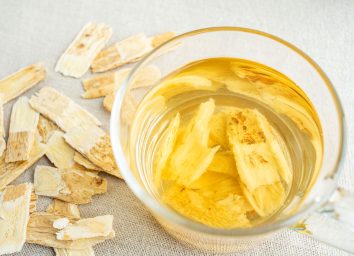These Foods Can Weaken Your Immune System, Say Experts
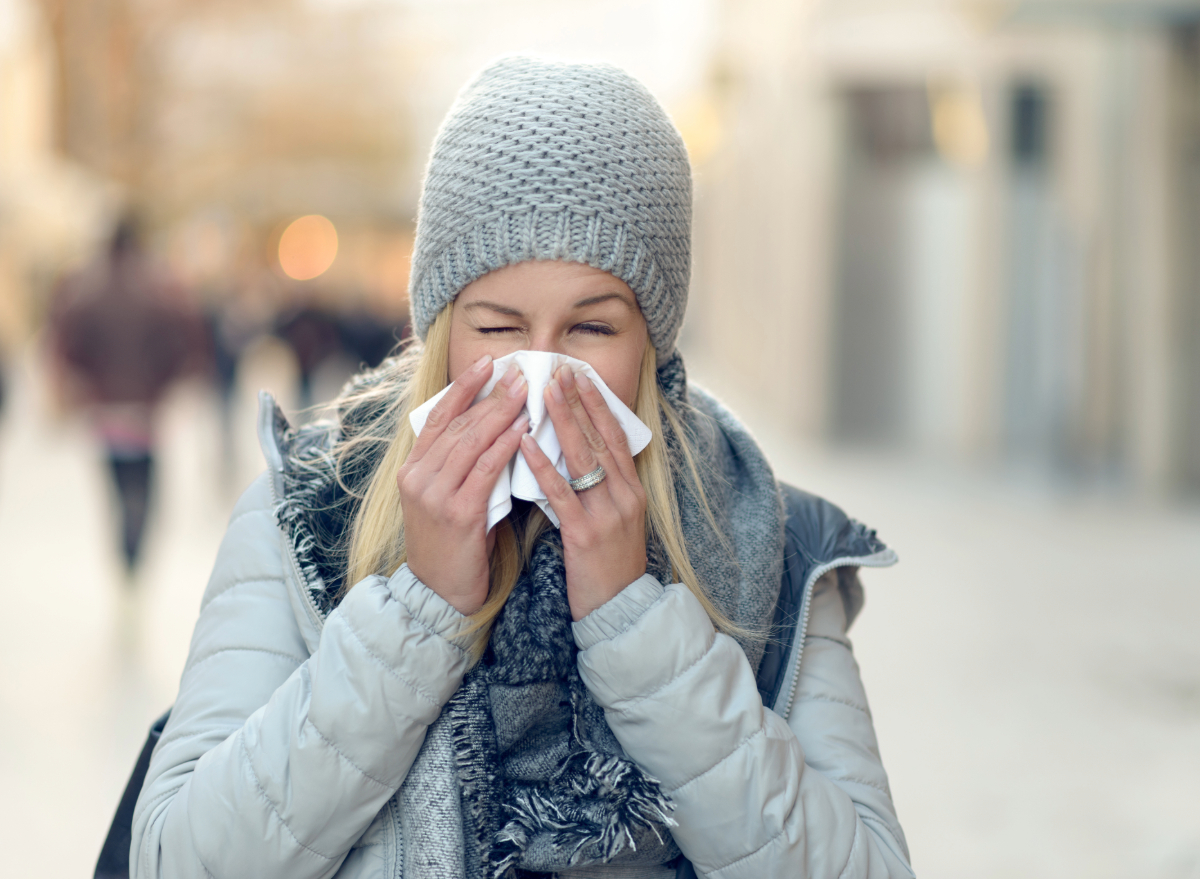
The last year has shown everyone that doing whatever you can to support your immune system is extremely important—and one key component of that is your diet. Since many did take it upon themselves to stock up on foods to build up their immune systems during 2020, it’s also ideal to know which foods could weaken your immune system and cause more damage in the long run, so you know what to avoid while in the grocery store. We’re still keeping these same habits in 2021, after all!
To help narrow down which foods you should leave out of your diet in order to build a stronger immune system, we checked in with Patricia Bannan, MS, RDN, who also shared healthier alternatives to the foods you should just ditch from your diet.
“While diet alone cannot ‘boost’ your immune system, including foods that are rich in certain nutrients (like vitamin C, vitamin D, selenium, and iron) can help support a healthy immune system, which can lead to less colds and sickness,” the nationally recognized nutritionist and healthy cooking expert says.
While focusing on a healthy and balanced diet is one piece of the puzzle when it comes to supporting a strong and healthy immune system, Bannan also notes that “getting adequate sleep, reducing stress, and regular exercise are also key components.”
Now, here is a list of the worst foods to eat for your immune system, along with suggestions on what you should eat instead. And while you’re making healthier changes, try out any of the 21 Best Healthy Cooking Hacks of All Time.
Soda
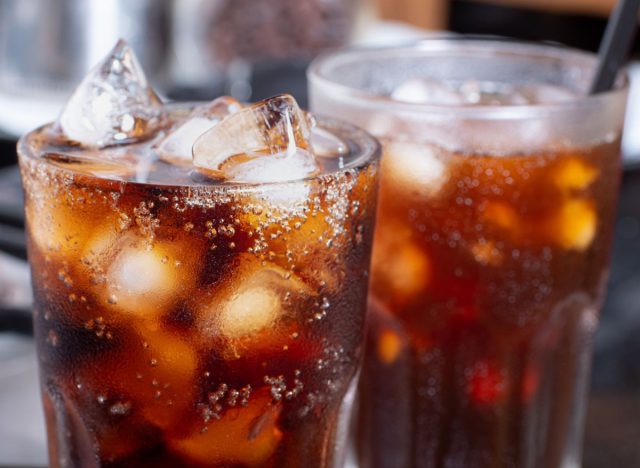
It is no surprise that soda and other sweetened beverages are high in sugar and calories and do not provide any nutritional value upon drinking them. That said, liquids with no added sugars are a better choice for building immunity.
“Research done in 2011 supported that higher intakes of soda and sweetened beverages can lead to weight gain and obesity,” the nutritionist says. “Those impacted by obesity can be at risk for suppressed immune function.”
What to drink instead: Bannan suggests choosing POM Wonderful 100% Pomegranate Juice as a beverage choice, which has no added sugar or preservatives and is powered by polyphenol antioxidants that help fight free radicals that can do damage to our body’s cells.
Fried Foods
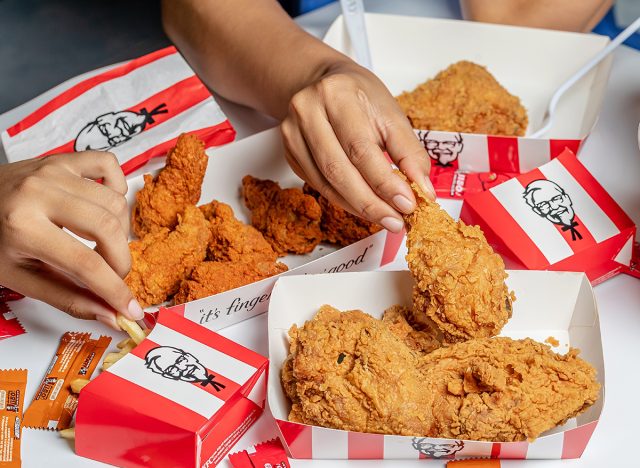
As delicious as fried foods are (we’re looking at you, French fries and chicken wings), they are not the best option for supporting your immune system because of their high grease and fat content.
“Fried foods tend to be high in grease and fat, which can suppress your immune system,” Bannan says. “A high-fat diet has been shown in a 2016 study to negatively impact the gut microbiome, which plays an important role in immune function.”
What to eat instead: Bannan says to opt for baking instead of frying to decrease the amount of fat and calories.
Alcohol

Take a pass on vodka, beer, and wine if you want to avoid feeling not-so-great the next day. If you choose to drink alcohol, Bannan says to “stick to the recommended intake of no more than one drink a day for women, or two drinks a day for men.”
“Studies support the connection between excessive alcohol intake and adverse immune-related health effects,” Bannan says. “Alcohol can disrupt immune pathways, and can also disrupt sleep, another aspect that can impact immunity.”
What to have instead: Try sipping on a spritzer, which is wine with sparkling water, to reduce your intake of alcohol and stay hydrated.
Candy

Sorry to break this one to you. But when you’re trying to boost your immune system, staying away from sugar-filled candy such as chocolate, sours, and gummies is a good way to avoid inflammation.
“A 2018 systematic review in the journal Nutrients suggests that processed sugars, like those found in candy, can increase inflammatory markers in the body,” Bannan says. “Higher amounts of inflammation in the body can negatively impact our immune systems.”
What to eat instead: Munch on a naturally sweet bowl of berries, which are full of vitamins and antioxidants called flavonoids that can help fight inflammation.
Energy Drinks
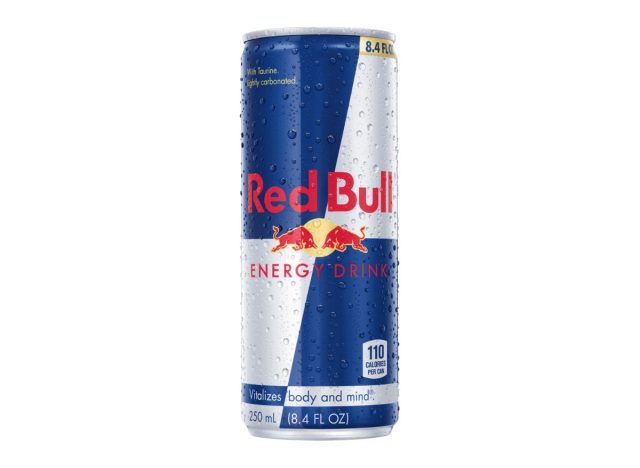
You know the culprits: Red Bull, Monster, 5-Hour Energy, and other energy drinks aren’t nearly as good for your immune system as a good night’s sleep is. Bannan points out that relying on energy drinks to give you some pep if you’re not sleeping enough can impact immune function.
“Energy drinks tend to be just as high, if not higher, in sugar than sodas,” she says. “Additionally, energy drinks have a much higher caffeine content, and excessive caffeine intake can increase inflammation in the body.”
What to do instead: Bannan says to focus on getting a good night’s sleep instead of relying on energy drinks to keep you awake and alert.
Fast Food
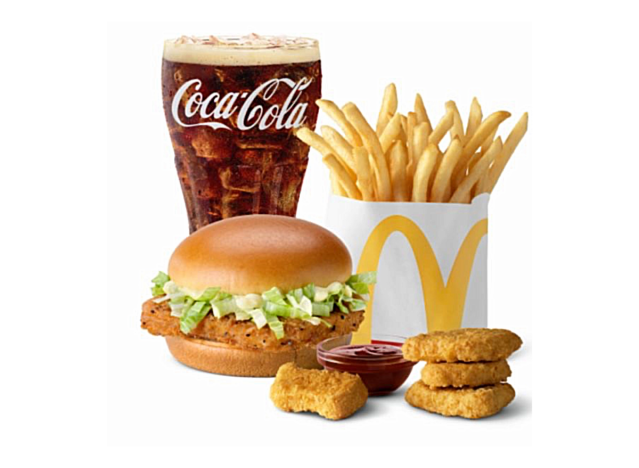
It may be tough to do, but avoiding burgers, fries, shakes, and other fast-food menu items that are high in calories, saturated fats, sodium, and sugar, is ideal to protect your immune system, according to Bannan.
“Research suggests that a diet that is high in fat and calories, or a traditional ‘western’ diet, can have long-term impacts on immunity, and also increase the risk for type 2 diabetes and heart disease,” she says.
What to eat instead: For a fast, budget-friendly meal you can easily make yourself, the nutritionist says to go for a classic: a peanut butter and jelly sandwich on whole-grain bread. And even those fast-food breakfast sandwiches are not ideal either, so start your day with a bowl of oatmeal and a banana to keep you full and satisfied instead.
Ice Cream

It’s creamy, sweet, and delicious, but it’s full of saturated fat and sugar that causes inflammation, which is why the popular dessert is not in favor of your immune system.
“Ice cream can have up to six times the amount of sugar you should have for the whole day, and that’s before the cone and sprinkles,” Bannan says.
What to eat instead: She recommends going for a plain yogurt or kefir with live active cultures for gut health or immune support, and add nuts, berries, or a touch of honey for nutrition and taste.
Potato Chips
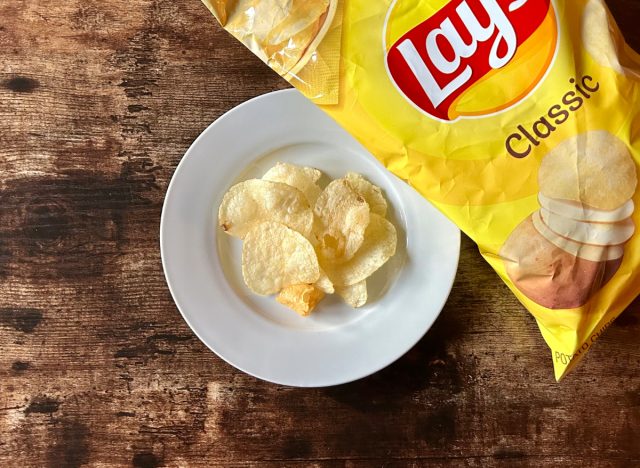
Since potato chips and other snack foods like corn chips and pretzels are salted and often fried, it is best to keep those bags closed if you are trying to boost your immune system.
“[They are] highly processed and low in nutrients, which research suggests when consumed in high amounts can suppress the immune system,” she says.
What to eat instead: Bannan says to instead snack on nuts, which offer a healthy trio of protein, fiber, and healthy fats, along with nutrients like zinc and selenium to support a healthy immune system.
Pastries, Cookies, and Cakes
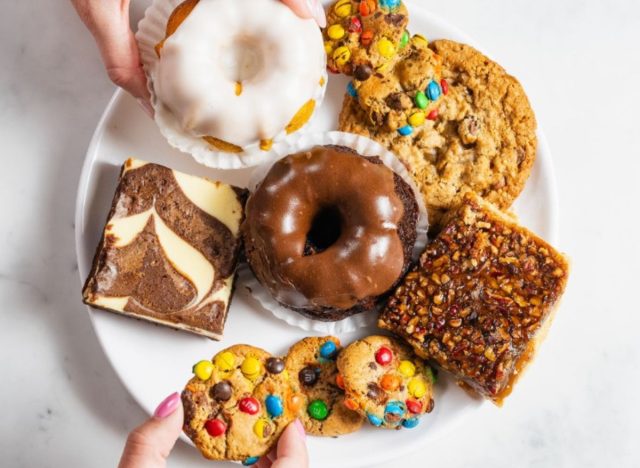
Having a sweet tooth is not ideal when working to boost your immune system. As we learned above, foods high in fat, calories, and sugar can lead to inflammation and weight gain. “Too many baked goods can offer a triple threat to your immune system,” Bannan says.
What to eat instead: The nutritionist suggests baking your own favorite treats with nutrient-packed, whole food ingredients, like dates, 100 percent whole wheat flour, applesauce, mashed bananas, and even black beans.
Sodium-Filled Foods
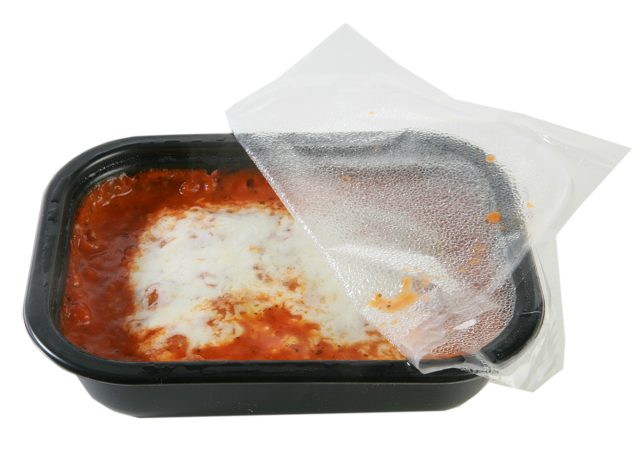
Avoiding sodium is difficult, especially because it is in so many foods we eat, including frozen meals, canned soups and vegetables, cheeses, pizza, snacks, and luncheon meats. But it’s best to minimize your sodium intake and avoid any high-sodium foods.
“A diet with a high sodium intake can both increase blood pressure and also suppress immune function, a 2020 study supported,” Bannan says. “As for adding salt to your food, one teaspoon of table salt contains 2,300 milligrams of sodium.”
What to eat instead: She suggests choosing packaged meals with no more than 600 milligrams of sodium per serving, and combine salt with other seasonings, like herbs and spices, so you can sprinkle on less while maximizing flavor.

